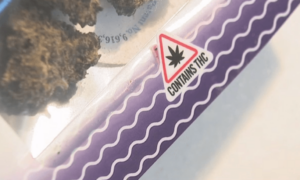ICYMI: California’s Cannabis Consolidation Trailer Bill

California continues with its experiment around regulated cannabis
Article Written By: Hilary Bricken
Love it or hate it, California continues with its democratic experiment around regulated cannabis production, distribution, and sales pursuant to the Medicinal and Adult-Use Cannabis Regulation and Safety Act (“MAUCRSA”). Although the licensing program here in California has had many regulatory bumps, the existing regulations are rife with ambiguities, and enforcement has been all over the place (or absent, or almost exclusively dictated by local governments), we’re going to see more technical fixes to the law on the horizon.
Earlier this month, the Governor’s cannabis consolidation bill finally posted. What am I talking about? Back in January of 2020, Governor Newsom announced that he intended to have the Bureau of Cannabis Control, CalCannabis, and the Manufactured Cannabis Safety Branch consolidated into a single cannabis agency to enforce cannabis regulations and oversee licensees in California. That effort was stalled by the advent and continuing impact of COVID-19. Finally though, as part of the 2021-2022 budget, Governor Newsom revealed his plans for this mass consolidation on February 2.
Back in January, the Governor’s Office released a budget summary which generally covers what the trailer bill will do regarding California cannabis. Here are the highlights as we see them:
Combined Agencies. If this bill passes, the three cannabis agencies now in play will be combined into a single Department of Cannabis Control (“DCC”) (within the California Bureau of Business, Consumer Services, and Housing Agency) that will commence on July 1, 2021.
Regulation Transfers. All of the regulations now in play under MAUCRSA will automatically be adopted by the DCC upon its creation unless and until repealed, replaced, amended, etc. This was a pretty big question for licensees: if consolidated, are we going to see an over haul of all agency regulations? For now, the answer appears to be “not really.”
Expanded Background Checks. Criminal background checks are being expanded under the bill to include criminal records:
. . . from a local or state agency certified records of all arrests and convictions, certified records regarding probation, and any and all other related documentation needed to complete an applicant or licensee investigation. A local or state agency may provide those records to a licensing authority upon request.
Verticality Interruption. If the bill passes, “[a] person with a financial interest in a state testing laboratory license . . . is prohibited from holding a financial interest in any other type of cannabis license.” This was not necessarily the case previously, at least not under the MAUCRSA regulations– even if it makes perfect sense to not allow someone to test their own cannabis.
Ag Product Designation. Cannabis would now be considered an agricultural product under the law, following what some of the other states have done, and affording licensed cannabis certain statuses and protections that it currently lacks.
Environmental Controls. Environmental impact will now take center stage for cultivators. The bill provides that:
In issuing cannabis cultivation licenses, the [DCC] shall consider issues, including, but not limited to, water use and environmental impacts. If the State Water Resources Control Board or the Department of Fish and Wildlife finds, based on substantial evidence, that cannabis cultivation is causing significant adverse impacts on the environment in a watershed or other geographic area, the [DCC] shall not issue new licenses or increase the total number of plant identifiers within that watershed or area.
Plant ID program. The state would have to set up a “unique identification program,” which seems to be different from the track and trace requirements and exclusively applies to cultivators regarding ID’ing the source of all cannabis/cannabis plants.
Chain of Custody Requirements. When testing labs coordinate for quality assurance testing, the drivers moving the product must now be direct employees of the lab, and labs can now receive samples directly from a manufacturer or a cultivator for “quality control purposes,” and such samples cannot be certified for retail sale. Meaning, cultivators and manufacturers would be able to go right to labs to have samples tested first before submitting entire batches to distributors for the state-required quality assurance testing.
Provenance Strictures. It’s now clear that if a cannabis product was cultivated, processed, manufactured, packed or held at any location that doesn’t have a state license, it is considered misbranded and violates the law (and under that circumstance would be destroyed), and any misbranded (or adulterated) products may be recalled by either the affected licensee or the DCC under certain conditions posing a threat to public health and safety. Adulterated or misbranded product (not otherwise derived from or stored at an unlicensed location/source) will be embargoed and the affected licensees can appeal to the DCC to continue making the product if certain limitations/controls are imposed by the DCC.
Social Equity Administration. The Governor’s Office of Business and Economic Development will spearhead state efforts dedicated to social equity licensing (and funding) and businesses in California by working with and being the point of contact for all local equity programs that receive assistance funds under MAUCRSA. The Bureau of Cannabis Control’s Equity-Local Liaison Unit would also be expanded to provide services to all social equity applicants of every license type.
Housekeeping. The bill finally cleans up any legal references anywhere regarding the Medical Cannabis Regulation and Safety Act and the Medical Marijuana Regulation and Safety Act to mean the Medicinal and Adult-Use Cannabis Regulation and Safety Act (MAUCRSA).
—
If you recall, MAUCRSA was born out of Governor Brown’s trailer budget bill back in 2017, so it’s not unusual for the budget bill to make sweeping changes to existing laws. While Governor Newsom’s bill isn’t a massive reform effort, it definitely creates some technical fixes and clarifications needed by the industry. In addition, it certainly cannot hurt to have just one cook in the kitchen — like pretty much every other state with cannabis licensing — when it comes to consistent rulemaking and more centralized enforcement.
Source: Canna Law Blog




































